Lifestyle
21 Most Popularly Celebrated Festivals In Nigeria
Some of the most popularly celebrated festivals in Nigeria include the Durbar Festival, the Eyo Festival, the Argungun Fishing Festival, the New Yam Festival, and GidiFest.

Some of the most popularly celebrated festivals in Nigeria include the Durbar Festival, the Eyo Festival, the Argungun Fishing Festival, the New Yam Festival, and GidiFest.
Nigeria, often called the “Giant of Africa,” is renowned for its immense cultural diversity. It encompasses over 371 ethnic groups, each with unique traditions and customs. This rich tapestry of cultures is vividly expressed through the nation’s numerous festivals, celebrating heritage, spirituality, and communal identity.
From the colourful parades of the Calabar Carnival to the sacred rituals of the Osun-Osogbo Festival, these events offer a captivating glimpse into Nigeria’s soul. These festivals preserve age-old traditions and foster unity and social cohesion among Nigeria’s diverse populace.
They attract thousands of visitors worldwide, eager to experience the country’s dynamic and festive spirit. In this article, we will explore 21 of the most popularly celebrated festivals in Nigeria, highlighting the unique characteristics and cultural significance of each.
Most Popularly Celebrated Festivals in Nigeria
Nigeria’s festivals, reflecting its rich cultural diversity, are vibrant celebrations of heritage, spirituality, and community. Here are the 21 most popularly celebrated Festivals in Nigeria
1. Durbar Festival

The Durbar Festival, which is celebrated primarily in the northern Nigerian cities of Kano, Katsina, and Zaria, is an elaborate event and one of the most popularly celebrated festivals in Nigeria. It showcases the Hausa-Fulani people’s rich cultural heritage.
It is traditionally held at the end of Ramadan and during Eid al-Fitr and Eid al-Adha, featuring a grand procession of horsemen, drummers, and dancers. The festival dates back centuries and serves as a display of military prowess, communal unity, and royal splendour.
During the Durbar, the Emir (traditional ruler) leads a procession of ornately dressed horsemen from his palace to the main parade ground, where he receives homage from his subjects.
Adorned in vibrant, colourful attire and elaborate turbans, the participants ride beautifully decorated horses, creating a spectacle of colour and culture. The event includes various displays of horsemanship, with riders performing daring feats and formations.
2. Eyo Festival

The Eyo Festival, also known as the Adamu Orisha Play, is a unique cultural event held in Lagos, Nigeria. Traditionally organized by the Yoruba people, the festival is a vibrant celebration honoring the reigning Oba of Lagos or the memory of a notable Lagosian.
The Eyo Festival is characterized by its iconic masqueraders, known as “Eyo,” don white flowing robes and distinctive hats called “agogo.”
The festival dubbed one of the most popularly celebrated festivals in Nigeria begins with a grand procession from the end of Carter Bridge to the Iga Idunganran Palace, transforming the streets into a sea of white. Each Eyo group, known as a “conclave,” represents different quarters of Lagos and performs dances and rituals along the parade route.
The Eyo masqueraders carry staffs called “opambata” and chant traditional songs, creating an atmosphere of reverence and celebration.
3. Osun-Osogbo Festival

The Osun-Osogbo Festival is a significant cultural and spiritual event held annually in Osogbo, Osun State, Nigeria. This two-week-long festival, typically celebrated in August, is dedicated to Osun, the Yoruba goddess of fertility, love, and water.
Celebrated within the sacred Osun-Osogbo Sacred Grove, a UNESCO World Heritage site, the festival draws thousands of devotees and tourists from around the globe.
The festival includes various activities such as traditional music, dance, art exhibitions, and theatrical performances that showcase the rich Yoruba culture. The highlight is the grand procession to the Osun River, where the Arugba (a virgin girl carrying a sacred calabash) leads the offering rituals to the goddess Osun. Participants seek blessings, fertility, and prosperity from the river goddess during this solemn ceremony.
The Osun-Osogbo Festival not only preserves and promotes Yoruba traditions but also fosters unity and cultural pride among the Yoruba people. It is a vibrant celebration that emphasizes the enduring spiritual and cultural heritage of the Osogbo community.
4. New Yam Festival

The New Yam Festival, also known as Iri Ji or Iwa Ji, is a prominent cultural celebration among the Igbo people of Nigeria and one of the most popularly celebrated festivals in Nigeria. Held annually at the end of the rainy season in August, this festival marks the harvest of the new yam, a staple crop and symbol of prosperity in Igbo culture.
It is a time to give thanks to the gods for a bountiful harvest and to seek blessings for the coming year.
The festival features various activities, including traditional music, dance, and elaborate feasts. The highlight is the ceremonial roasting and eating of the first yam by the community’s king or a high priest, symbolizing the community’s gratitude and the commencement of the harvest season. This act is believed to appease the gods and ancestors, ensuring continued fertility and abundance.
The New Yam Festival fosters unity and cultural pride among the Igbo people, reinforcing their agricultural heritage and communal values. It also serves as an opportunity for social gatherings, strengthening bonds among family members and the larger community.
5. Calabar Carnival

Dubbed “Africa’s Biggest Street Party,” the Calabar Carnival takes place in December in Calabar. This month-long festival features colourful parades, elaborate costumes, and performances by both local and international artists.
The carnival is divided into four parts: the Millennium Week, the Sports Week, the TINAPA Family Festival, and the Carnival Week. Each segment offers a unique experience, blending tradition with contemporary entertainment.
6. Argungu Fishing Festival

The Argungu Fishing Festival, held in Kebbi State, is one of Nigeria’s oldest and most popularly celebrated festivals in Nigeria. Participants compete to catch the largest fish using traditional fishing methods.
The festival, which dates back to 1934, also includes agricultural shows, canoe races, and cultural displays. It is a celebration of the rich aquatic life of the Sokoto River and the fishing skills of the Kebbawa people.
As the festival continues to evolve and grow, it remains a symbol of pride and a source of joy for the people of Argungu and beyond.
By balancing cultural traditions with modern sustainability practices, the Argungu Fishing Festival can continue to thrive and inspire future generations, ensuring that this unique and vibrant celebration remains an integral part of Nigeria’s cultural landscape.
7. Sango Festival

The Sango Festival, held in Oyo State, celebrates Sango, the Yoruba god of thunder and lightning. This festival is marked by drumming, singing, dancing, and the performance of traditional rituals.
Sango, also known as Shango, is one of the most revered deities in Yoruba mythology.
According to legend, Sango was the third Alaafin (king) of the Oyo Empire, renowned for his powerful reign and mystical abilities to control thunder and lightning. After his mysterious disappearance, Sango was deified and became a central figure in Yoruba religion, symbolizing justice, power, and protection.
The highlight is the lighting of the Sango fire, which is believed to bring blessings and protection. The festival serves as a means of preserving the Yoruba cultural heritage and religious beliefs.
8. Ofala Festival

The Ofala Festival The Ofala Festival is a grand and vibrant cultural event celebrated by the Igbo people of southeastern Nigeria. Rooted in the rich traditions and history of the Igbo kingdom, the festival is primarily held in Onitsha, Anambra State, but is also observed in other towns with Igbo royalty.
The Ofala Festival dates back to pre-colonial times and is traditionally associated with the annual rites of the Obi (king) of Onitsha. Historically, the festival marked the end of the king’s period of seclusion, during which he engaged in intense spiritual renewal and communicated with the ancestors to seek their guidance for the coming year.
Upon the completion of this period, the Ofala Festival served as the king’s public re-emergence, allowing him to reconnect with his subjects and celebrate his reign.
The word “Ofala” is derived from two Igbo words: “Ofo,” which means authority, and “Ala,” which means land. Thus, Ofala symbolizes the king’s authority over the land and his people. The festival features vibrant parades, traditional music, dance, and the display of the king’s regalia.
It is a significant event that reinforces the cultural identity and unity of the Igbo people.
9. Abuja Carnival

The Abuja Carnival, also known as the Abuja International Carnival, is a vibrant celebration of culture, arts, and unity that takes place annually in Nigeria’s capital city, Abuja. The carnival, typically held in November, showcases Nigeria’s rich and diverse cultural heritage and attracts local and international participants and visitors.
With a focus on promoting national unity and global cultural exchange, the Abuja Carnival features a variety of events and activities, including street parades, traditional music and dance performances, art exhibitions, and culinary showcases.
Participants from different Nigerian states and cultural groups, as well as international performers, come together to share their unique customs and artistic expressions.
10. The Igue Festival

The Igue Festival is one of the most significant cultural events celebrated by the Benin people of Edo State in southern Nigeria. This annual festival is deeply rooted in the traditions and history of the Benin Kingdom, showcasing the rich cultural heritage and spiritual practices of the Edo people.
The Igue Festival is primarily associated with the Oba (king) of Benin and is celebrated with grandeur, incorporating rituals, traditional music and dance, and communal feasting.
The festival includes traditional dances, music, and rituals performed at the Oba’s palace. It is a time for the Benin people to honor their ancestors and seek blessings for the coming year.
11. Egungun Festival

The Egungun Festival, celebrated by the Yoruba people, is a masquerade festival that honors the spirits of the ancestors. Egungun, clad in elaborate costumes and masks, perform dances and rituals to bring blessings and protection to the community.
The Egungun Festival has its roots in the deep-seated Yoruba belief in the continuity of life after death and the ongoing relationship between the living and their ancestors.
The term “Egungun” refers to both the ancestral spirits and the masked performers who embody these spirits during the festival. The festival is believed to have originated centuries ago as a way to honor and communicate with the ancestors, ensuring their guidance and favour.
The festival, which occurs annually between June and July in Oyo State, underscores the Yoruba people’s belief in the continuity of life and the presence of ancestors in their daily lives.
12. Nwonyo Fishing Festival

The Nwonyo Fishing Festival is a vibrant annual celebration held by the Ibi people in Taraba State, Nigeria. Centered around the Nwonyo Lake, located about 5 kilometers north of the Ibi community, this festival highlights the region’s rich cultural heritage and traditional fishing practices.
With a history spanning centuries, the Nwonyo Fishing Festival shares similarities with other West African fishing festivals, such as the Argungu Fishing Festival in Kebbi State. The lake is about 15 kilometres west of the Benue River, demonstrating its importance as a water resource for the area.
The festival typically features a range of activities, including canoe parades, colourful cultural displays, swimming, boat racing, masquerade dances, and the highly anticipated fish-catching competition. This main event showcases the fishermen’s skills, with the winner earning acclaim and prizes for catching the largest fish.
13. Nwafor Festival

The Nwafor Festival, is a significant cultural event celebrated by the people of Ogidi, a town in Idemili North Local Government Area of Anambra State, Nigeria. This annual festival is a vibrant and colorful celebration that marks the beginning of the farming season and honours the community’s ancestral heritage.
The origins of the Nwafor Festival can be traced back to ancient times when the Igbo people sought to mark significant agricultural milestones and seek blessings for bountiful harvests. The festival’s name, “Nwafor,” translates to “new yam” in English, highlighting its connection to the yam, a staple crop and symbol of prosperity among the Igbo.
Traditionally, the festival was a way to thank the gods and ancestors for a successful planting season and to pray for favorable weather and abundant harvests.
Rich in tradition, the Nwafor Festival is characterized by elaborate ceremonies, traditional music and dance, masquerade performances, and communal feasting. It serves as a vital expression of the cultural identity and unity of the Ogidi people.
14. Gidi Fest

Gidi Fest, short for Gidi Culture Festival, is among the most popularly celebrated festivals in Nigeria. It’s a contemporary music and arts festival held in Lagos. It showcases the best of Nigerian and African music, fashion, and art.
The festival attracts young people from across the continent and serves as a platform for promoting African creativity and talent.
15. Ojude Oba Festival

The Ojude Oba Festival, held in Ijebu-Ode, Ogun State, is a unique celebration that brings together the Ijebu people to honour their king, the Awujale of Ijebuland.
The festival takes place on the third day after Eid al-Kabir and features colourful parades, traditional dances, horse riding, and the display of the king’s regalia. It is a time for the Ijebu people to showcase their rich cultural heritage and unity.
16. Sharo Festival

The Sharo Festival, celebrated by the Fulani people, marks the passage of boys into manhood. It is a test of endurance and bravery, where young men undergo flogging in a public display of courage.
The festival includes traditional music, dance, and other cultural displays. It is a significant rite of passage that reinforces the values of strength and resilience in Fulani culture.
17. Awankere Festival

The Awankere Festival, also known as the Okere Juju Festival, is an annual celebration held by the Itsekiri people of Okere in Warri South Local Government Area, Delta State, Nigeria.
The Awankere Festival, which has its roots in the 15th century, is primarily a fertility festival that promotes peace, unity, and prosperity within the community. The event is divided into two stages: the first is ritualistic and involves sacred rites, while the second stage features a grand display of masquerades, music, singing, and dancing, which is open to the public.
18. Igbo Ukwu Festival

The Igbo Ukwu Festival is a vibrant cultural celebration held in Igbo Ukwu, a historic town in Aguata Local Government Area of Anambra State, Nigeria. Known for its rich history and archaeological significance, Igbo Ukwu has become synonymous with the preservation of Igbo heritage and traditions.
Igbo Ukwu is renowned for its archaeological discoveries, which have provided profound insights into the early history and advanced civilization of the Igbo people. In the 1930s, a series of archaeological excavations in Igbo Ukwu unearthed a wealth of artifacts, including intricate bronze sculptures, pottery, and beads, dating back to the 9th century AD.
These findings revealed a sophisticated society with advanced metalworking skills and extensive trade networks. The festival is an annual event that showcases the town’s unique history, cultural practices, and communal unity through various activities, including traditional ceremonies, dances, music, and exhibitions.
19. Olojo Festival

The Olojo Festival is an ancient annual celebration held in Ile-Ife, Osun State, Nigeria. As one of the most popular festivals in Yoruba culture, it has been described by the current Ooni of Ife, Oba Adeyeye Enitan Ogunwusi, as a celebration of the Black race across the globe.
“Olojo” stems from the Yoruba language, meaning “The Day of the First Dawn.” It represents the gratitude humans feel towards the creation of the universe and human existence. Olojo can also be translated as “Owner of the day.” The festival’s popularity in Ile-Ife is attributed to its rich history and mythological background.
20. Gani Festival

The Gani Festival, also known as Sallar Gani in the Hausa language, is an annual traditional celebration observed primarily in four emirates of Northern Nigeria: Borno, Bauchi, Kano, and Sokoto.
The festival commemorates the birth month of Prophet Muhammad and holds great religious and cultural significance for the region’s Muslim communities. The Gani Festival typically takes place during the Islamic month of Rabi’ al-awwal, which corresponds to the third month of the lunar-based Islamic calendar.
21. Christmas Festival

Christmas Festival is an annual celebration observed by millions of people around the world, marking the birth of Jesus Christ on December 25th. It is a prominent religious and cultural event in the Christian calendar, with traditions and customs that vary across different regions and communities.
Christmas celebrations often begin weeks in advance, with people decorating their homes and public spaces with colourful lights, Christmas trees, wreaths, and festive ornaments. Many also participate in holiday shopping and gift-giving, exchanging presents with loved ones as a symbol of affection and goodwill.
Conclusion
The 21 most popularly celebrated festivals in Nigeria highlighted in this article testify to the country’s vibrant cultural mosaic and its people’s deep-rooted traditions. Each festival, whether it be the majestic Durbar with its stunning horse parades, the spiritual Osun-Osogbo Festival that draws thousands seeking blessings, or the electrifying Calabar Carnival, reflects the diverse ways in which Nigerian communities celebrate their heritage.
Beyond their cultural significance, these festivals promote social cohesion and unity among Nigeria’s various ethnic groups. In essence, Nigeria’s festivals are a vibrant showcase of the nation’s rich cultural heritage, embodying its people’s spirit, resilience, and unity. These celebrations not only preserve and honour the past but also pave the way for a more inclusive and culturally rich future.
Thanks for reading! If you like this article, please feel free to share.




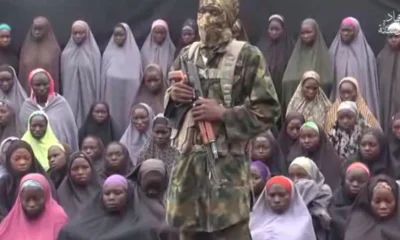

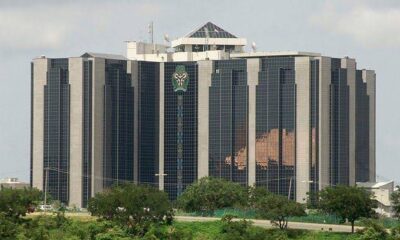





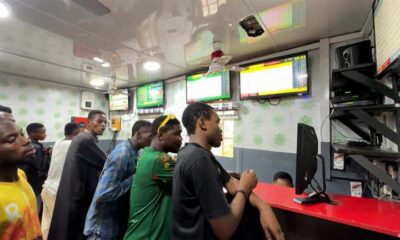

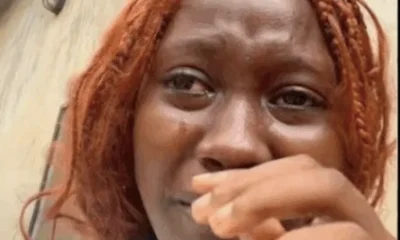

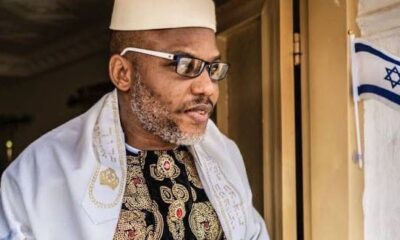





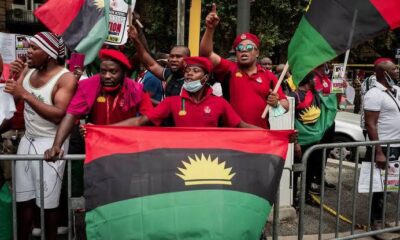

You must be logged in to post a comment Login